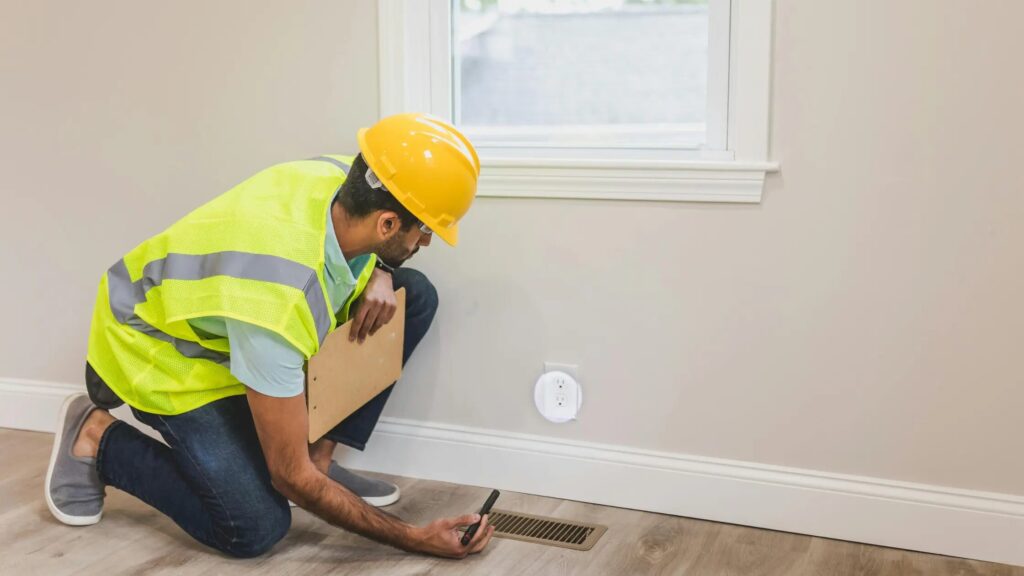Effectively managing maintenance requests is a crucial part of ensuring a positive experience for tenants and protecting the value of your property.
Whether you’re a seasoned landlord or new to letting, handling repairs efficiently keeps tenants satisfied and prevents small issues from turning into costly problems. With advancements in technology and communication tools, managing maintenance remotely is now more streamlined than ever.
In this guide, we’ll outline practical strategies to simplify the maintenance process, offer value to tenants, and make property management stress-free for landlords.
Establish clear communication channels
Open, accessible communication is key to managing maintenance requests effectively. Tenants need to know exactly how to report problems and feel confident that their concerns are being addressed.
Providing options like an online portal, email, or a dedicated phone line ensures tenants can report issues conveniently. Online platforms are particularly effective, allowing tenants to describe the problem, submit photos or videos, and track the progress of repairs. This not only improves clarity but also reduces delays caused by unclear reporting.
By offering straightforward communication channels, you demonstrate professionalism and care — qualities tenants truly value.
Prioritise and categorise requests
Not all maintenance requests require immediate attention. Implementing a system to prioritise and categorise issues based on urgency allows you to allocate resources effectively while maintaining tenant satisfaction.
Common categories might include:
- Urgent repairs: Issues affecting health, safety, or basic living conditions, such as heating failures, leaks, or electrical faults.
- Routine repairs: Minor repairs like fixing a dripping tap or replacing a light fixture.
- Preventative maintenance: Regular upkeep to prevent issues, such as boiler servicing or gutter cleaning.
A transparent prioritisation system ensures urgent matters are addressed promptly while routine tasks are scheduled efficiently. This balance prevents disruption and helps you manage costs effectively.
With the Renters’ Rights Bill set to become law, there will be guidelines over how long it should take to address issues with damp and mould. Speak to your local Parkers agent for more information on these.
Acknowledge requests promptly
A timely response reassures tenants that their concerns are being taken seriously. When a maintenance request is submitted, acknowledge it as quickly as possible — ideally within 24 hours.
Even if a repair cannot be completed immediately, a simple confirmation and outline of the next steps will put tenants at ease. For example, a quick message like, “Thank you for reporting the issue. We’re coordinating with a contractor and will update you shortly,” maintains trust and sets clear expectations.
Timely acknowledgement demonstrates reliability and keeps the lines of communication open.
Assess and document issues thoroughly
Before dispatching a contractor, gather as much information about the problem as possible. Encouraging tenants to provide detailed descriptions, photos, or videos helps you understand the scope of the issue without requiring an initial site visit.
Documenting all reported issues and the steps taken to resolve them ensures clarity and consistency. Keeping a digital record through property management software or spreadsheets also helps you track recurring problems, costs, and timelines. This information can be invaluable for future repairs or budgeting.
Build a network of trusted contractors
Reliable contractors are essential for handling repairs efficiently, especially when managing properties remotely. Whether it’s plumbers, electricians, or general maintenance professionals, having a trusted network ensures quality repairs are carried out promptly.
To streamline the process:
- Develop relationships with local, qualified contractors who can be contacted quickly.
- Maintain a list of professionals for different types of repairs to avoid scrambling for assistance when issues arise.
- Review contractor performance regularly to ensure quality work and competitive pricing.
By partnering with dependable contractors, you can confidently delegate repairs and minimise stress for yourself and your tenants.
Keep tenants informed during repairs
Communication doesn’t stop after a request is logged. Keeping tenants updated throughout the repair process builds trust and reduces frustration. Inform tenants of the repair timeline, potential delays, and how the issue will be resolved.
For example:
- Confirm when a contractor has been scheduled.
- Provide updates if delays occur, such as parts being on order.
- Follow up after the repair to ensure the issue has been resolved to their satisfaction.
Being transparent throughout the process demonstrates professionalism and fosters positive relationships with tenants.
Adopt preventative maintenance
Preventative maintenance is a proactive approach that reduces the likelihood of unexpected issues. Scheduling regular inspections and servicing for key systems—such as boilers, plumbing, or roofing—can identify potential problems early and save money in the long run.
Examples of preventative measures include:
- Annual boiler servicing to ensure heating systems run efficiently.
- Gutter cleaning to prevent leaks or water damage.
- Routine checks of appliances and structural elements to spot wear and tear.
By taking preventative steps, you minimise costly repairs and show tenants that you are committed to maintaining a safe and functional home.
Track maintenance history for better management
A detailed record of all maintenance requests, repairs, and associated costs provides valuable insights into your property’s needs. Property management software can streamline this process, allowing you to:
- Monitor recurring issues and address underlying causes.
- Plan for future maintenance budgets.
- Maintain compliance with legal obligations, such as safety checks and inspections.
A well-documented maintenance history makes it easier to manage repairs and demonstrates your commitment to maintaining the property’s condition.
Consider managed lettings service
While handling maintenance requests remotely can be efficient with the right systems, it still requires time, organisation, and reliable contractor relationships. For landlords looking to simplify the process, a professional property management service can offer invaluable support.
At Parkers, our property management services are tailored to ensure maintenance is handled seamlessly from start to finish. Here’s how we add value:
- Centralised coordination: Tenants report issues to us directly, and we handle everything, from logging requests to dispatching trusted contractors.
- Reliable repairs: We work with vetted, local professionals to guarantee high-quality results.
- 24/7 support: Tenants can report urgent issues anytime, giving you peace of mind that emergencies will be addressed promptly.
- Transparent communication: We keep you informed at every step, providing regular updates and detailed reports.
- Legal compliance: From safety inspections to maintenance records, we ensure all requirements are met.
With a professional service, landlords can focus on their investment while knowing their properties — and tenants — are in expert hands.
If you’d like to learn more about how our managed lettings service can support your property needs, get in touch today. We’re here to help.







